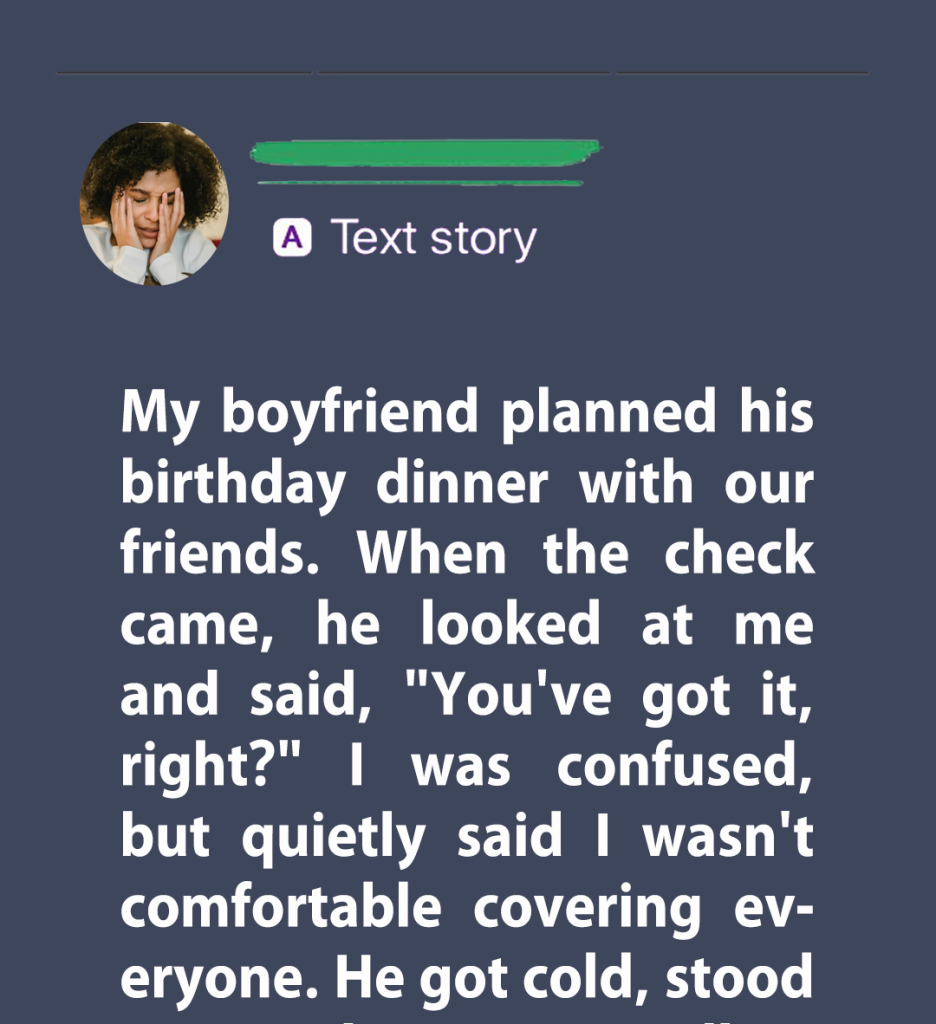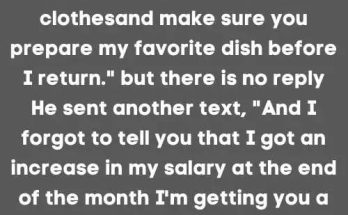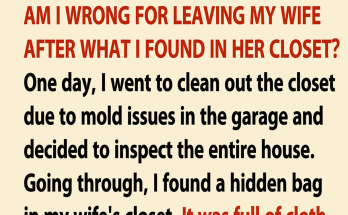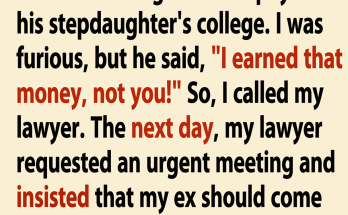
We received a heartfelt letter from someone who planned a birthday dinner that quickly turned sour. After she covered the entire bill unexpectedly, her boyfriend walked out and later accused her of embarrassing him. Now she’s left wondering if their relationship can survive this moment of tension and mistrust.

My boyfriend planned a birthday dinner with 12 guests, mostly our friends. I had already paid for his cake and got him a gift. But when the check came, he looked at me and said, “You’ve got it, right?”
In the end, I paid for his meal. But I couldn’t shake the feeling. I felt used, like he saw me more as a wallet than a partner.

Later that night, I sent a polite group message. “Hey! Since I wasn’t told I’d be covering dinner, here’s my Venmo in case you want to chip in like I did.” To my surprise, half the guests actually paid, and a few even apologized for how awkward it had been.
That’s when my boyfriend texted me, furious. He accused me of making him “look broke.” I replied, “No, you did that yourself.”
Please, advise.
Best,
Jessica
Your boundaries around money are completely valid — and should be respected.

His reaction says a lot more than the dinner itself.

Storming out and blaming you later for “making him look broke” isn’t just dramatic—it’s emotionally manipulative. Instead of apologizing or discussing the situation maturely, he deflected responsibility onto you, making you feel like the bad guy.
Example:
A respectful partner might have said, “Hey, I thought you’d cover it, but I should’ve asked. Let’s talk about how we handle this next time.” That’s how adults handle conflict.
You handled the group follow-up with grace—don’t second-guess that.

Why it matters:
Many people would’ve either stayed silent or lashed out in the group chat. You chose a respectful tone and simply shared your Venmo. The fact that others responded positively—and even apologized—shows they understood the situation and likely felt uncomfortable too.
Example:
This shows that your instincts were correct. Sometimes, third-party validation helps us realize we’re not “crazy” or “too sensitive”—we’re just used to being considerate.


